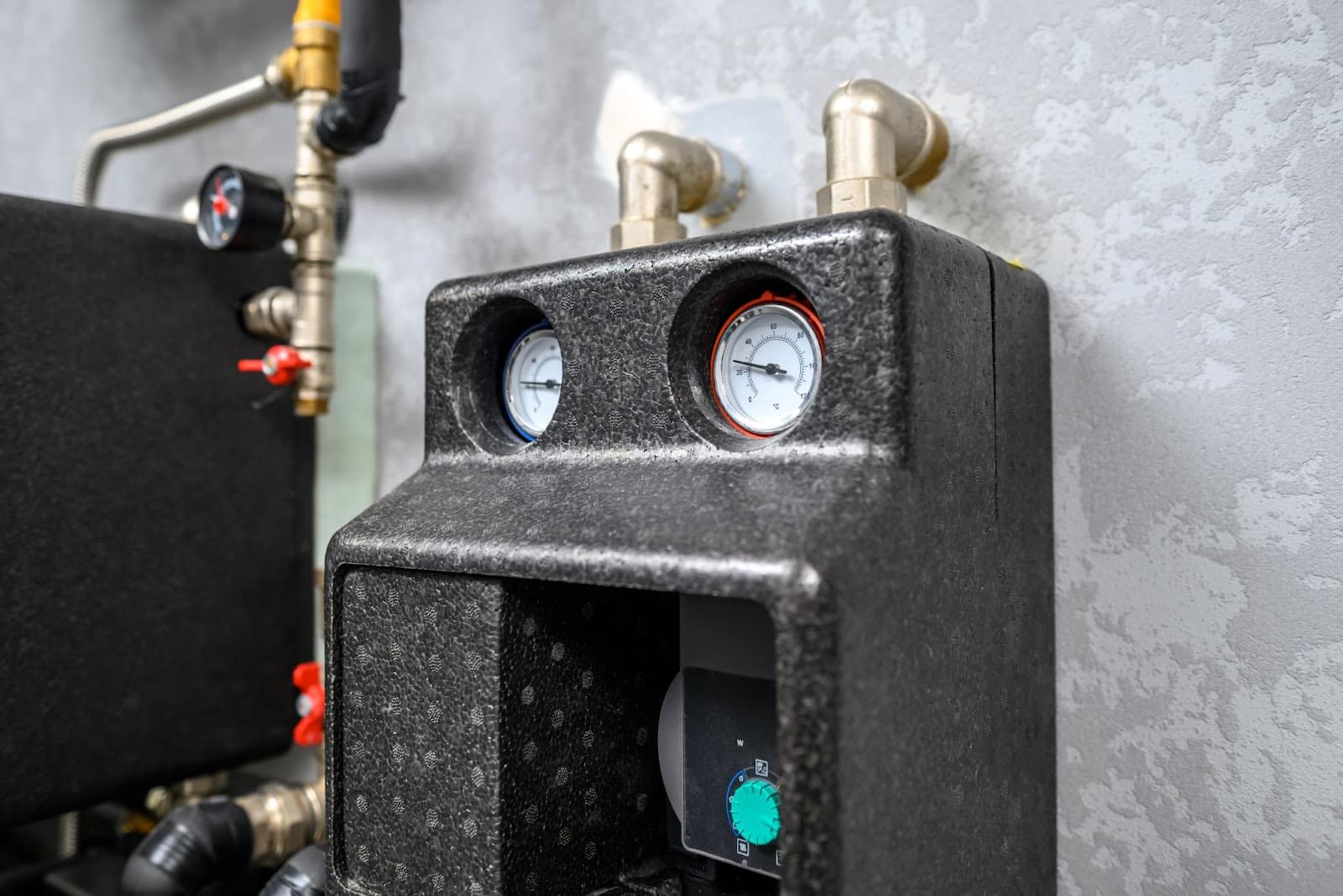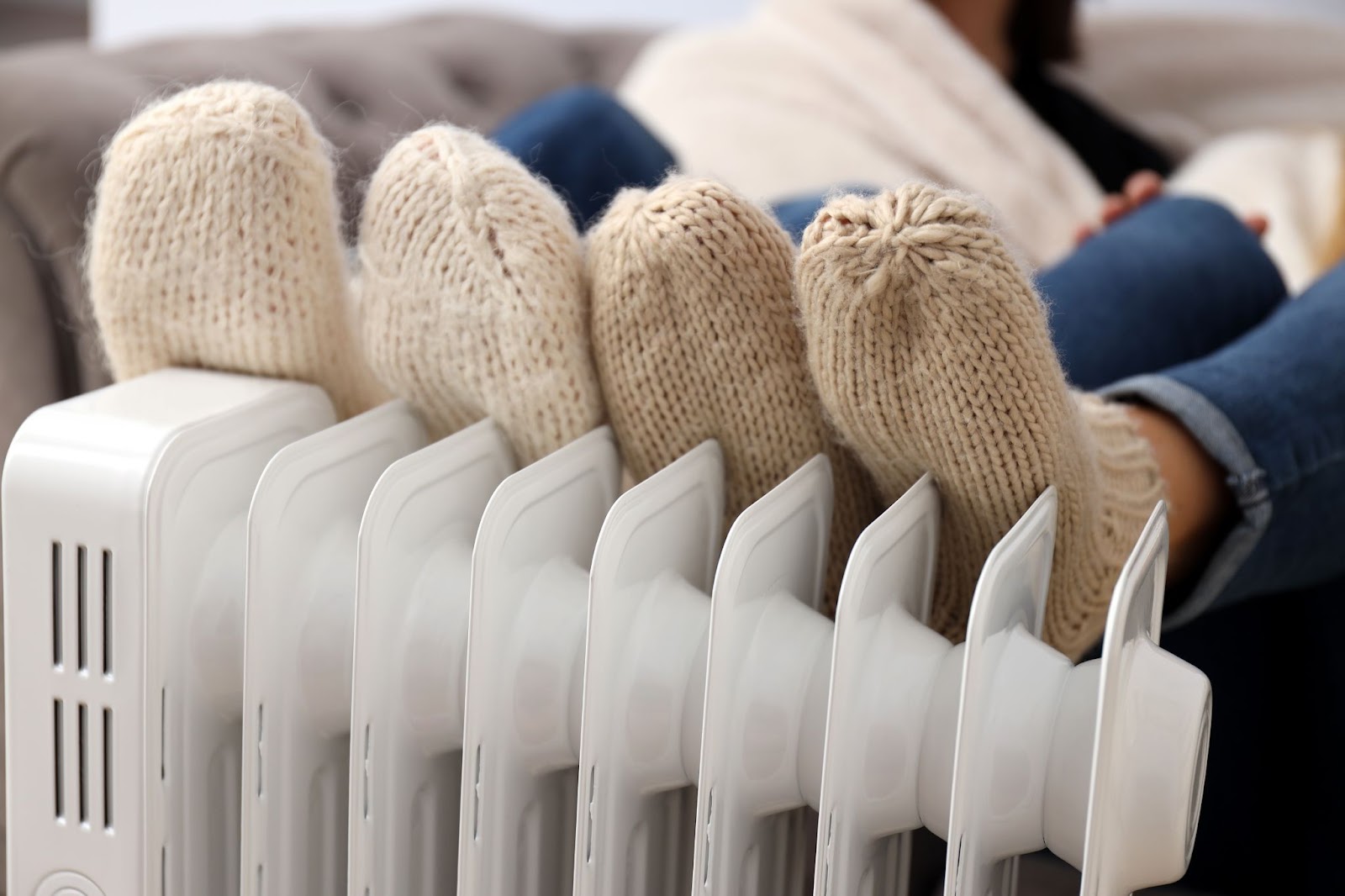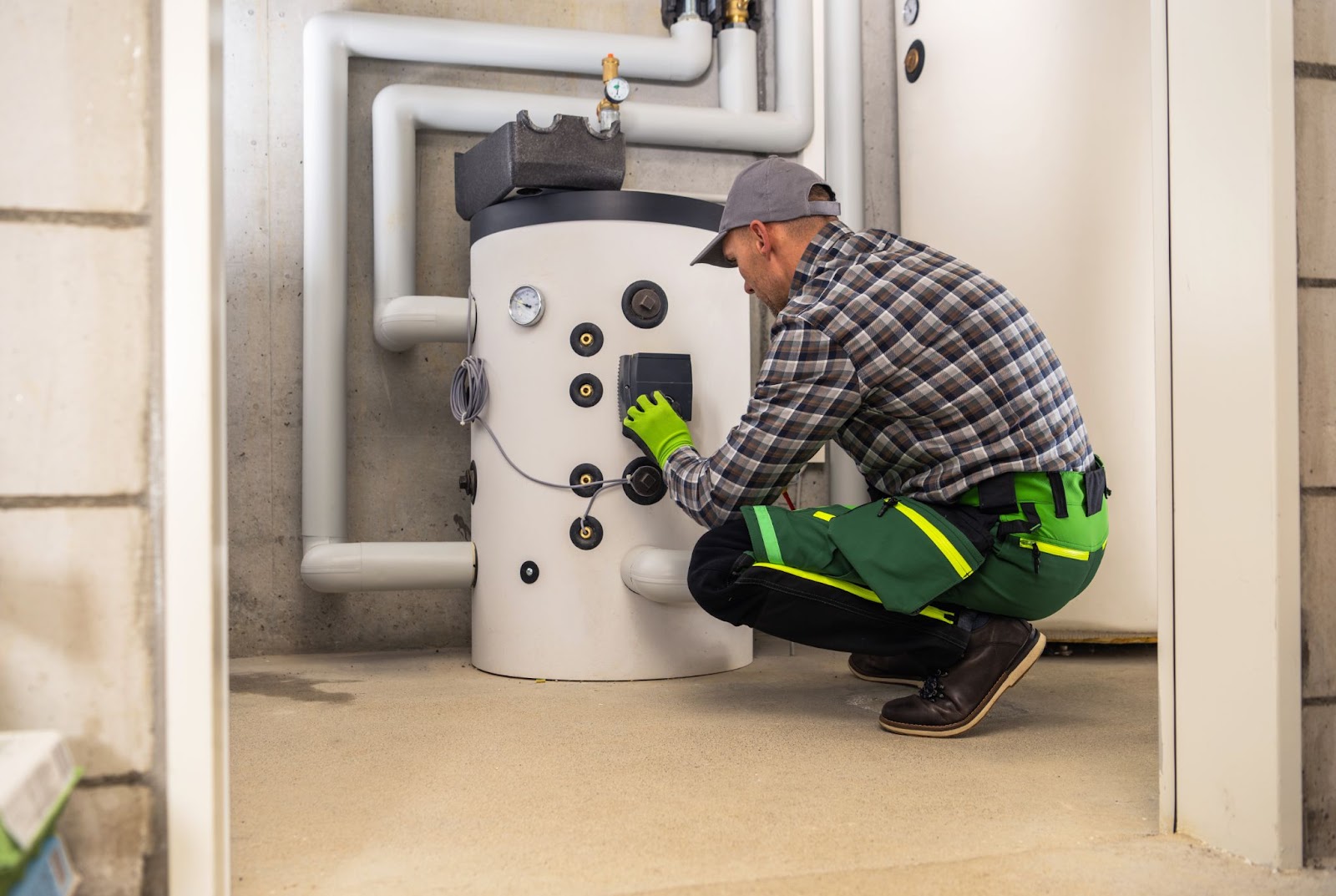
Heat Pump vs Furnace: Which Is Best for Your Home?
Navigating the world of home heating can feel like charting a course through uncharted waters, with heat pumps and furnaces as the two main vessels steering you toward a warm, comfortable home. While selecting the right heating system might seem daunting, it’s also an opportunity to transform your living space into a haven of comfort and efficiency. These systems keep the chill at bay but also touch on the technological advancements and innovations that have made them more appealing than ever.
The Difference Between a Heat Pump and a Furnace
A heat pump is a versatile system that uses electricity to transfer heat from the outside air or ground into your home during winter. It reverses the process of extracting heat from your home during summer. Its heating and cooling ability makes it a dual-function solution for year-round home climate control.
On the other hand, a furnace is a heating unit that generates heat through fuel combustion, such as gas, oil, or propane, and distributes this heat throughout the home using a duct system. It is a traditional heating solution known for producing a high level of warmth suitable for colder climates.
Types of Heat Pumps
Heat pumps are available in various types to adapt to different environmental needs. Each type utilizes a unique method to transfer heat, catering to specific climate conditions and installation requirements. Understanding the types of heat pumps can help homeowners choose the most efficient and suitable option for their home’s heating and cooling needs.
Air-Source Heat Pumps
Air-source heat pumps are the most common type, designed to transfer heat between the inside of a building and the outside air. They are known for their efficiency in moderate climates and can reduce electricity use for heating by approximately 50% compared to traditional resistance heating like furnaces and baseboard heaters. Their ability to dehumidify better than standard central air conditioners makes them popular in humid climates.
Ground-source (Geothermal) Heat Pumps
Ground-source, or geothermal heat pumps, utilize the earth’s constant ground temperature to heat and cool buildings. These systems can achieve higher efficiencies than air-source heat pumps, circulating water or refrigerant through pipes buried in the ground, especially in extreme climates. While the initial installation cost is higher due to the need to install the ground loop, geothermal systems offer lower operating costs in the long run due to their exceptional efficiency.
Water-Source Heat Pumps
Water-source heat pumps operate similarly to ground-source systems but use water bodies like lakes, ponds, or wells as the heat exchange medium. These systems are ideal in areas with accessible water sources, providing an efficient and environmentally friendly heating and cooling solution. They offer the benefits of geothermal systems without extensive land drilling, making them a practical option for properties near water.
Ductless Mini-Split Heat Pumps
Ductless mini-split heat pumps are designed for homes without traditional ducted heating systems. They are a flexible option for adding heating and cooling to specific rooms without requiring extensive ductwork. Mini-splits consist of an outdoor compressor/condenser and one or more indoor air handling units connected by a conduit. They are especially suited for retrofitting older buildings with non-ducted heating systems, such as radiant panels or space heaters.
Absorption Heat Pumps
Absorption heat pumps are a variant of the traditional heat pump that uses heat rather than electricity as its energy source. Often fueled by natural gas, these systems can also operate on solar-heated water, geothermally heated water, or propane. While less common in residential settings, absorption heat pumps are an option for homes off the electrical grid or in areas where gas is more economical than electricity.
Choosing the correct type of heat pump involves considering your climate, the physical constraints of your property, and your specific heating and cooling needs. Each type offers distinct advantages, from the energy efficiency of air-source heat pumps in moderate climates to geothermal systems’ powerful and consistent performance in diverse environmental conditions.
Kinds of Furnaces
When it comes to heating your home, choosing the right type of furnace is crucial for efficiency, comfort, and cost-effectiveness. Furnaces come in various types, each utilizing different fuel sources and technologies.
Gas Furnaces
Gas furnaces are among the most popular types due to their efficiency and the widespread availability of natural gas. They heat the home by burning natural gas to produce heat distributed throughout the space via ductwork. Modern gas furnaces are known for their high efficiency, with many models achieving up to 98% efficiency ratings.
Oil Furnaces
Oil furnaces operate similarly to gas but use oil as the fuel source. They are a common choice in areas where natural gas is not readily available. Oil furnaces require a storage tank for the oil, making them less convenient than gas furnaces. However, they can provide powerful heating, making them suitable for colder climates.
Electric Furnaces
Electric furnaces use electric heating elements to generate heat. While they are usually less efficient than gas and oil furnaces regarding operational costs, electric furnaces are cheaper to install, require less maintenance, and have a longer lifespan. They are a good option in areas where electricity is inexpensive or gas and oil are unavailable.
Propane Furnaces
Propane furnaces are an alternative for homes that don’t have access to natural gas. Propane is a byproduct of natural gas processing and petroleum refining, and it is stored in tanks at the property. Propane furnaces can be very efficient and provide a heating solution comparable to natural gas furnaces, but the cost of propane can vary significantly.
Selecting the ideal furnace requires considering fuel availability and cost, your home’s needs, and environmental concerns. Gas furnaces balance efficiency with cost-effectiveness, while electric furnaces are suited for those prioritizing low initial costs and ease of maintenance. In regions without natural gas, oil, and propane furnaces offer efficient heating. For an optimal choice, consider the furnace’s efficiency, your home’s size, and climate. For tailored advice, consult a heating professional.
Heat Pump vs. Furnace: Detailed Comparison for Home Heating Solutions
Selecting the right heating system for your home involves comparing the features, advantages, and limitations of heat pumps and furnaces. Each system offers unique benefits, making them suitable for different climates, budgets, and environmental considerations.
Advantages and Disadvantages of Heat Pumps
Transferring heat rather than generating it through combustion ensures lower energy consumption and reduced utility bills, making heat pumps unparalleled in energy efficiency. This process also positions heat pumps as a more environmentally friendly option, operating on electricity and boasting a smaller carbon footprint than traditional systems that rely on burning fossil fuels. Additionally, their dual functionality cannot be overstated. The capability to heat and cool a home with one system offers remarkable convenience and streamlines overall climate control.
However, heat pumps’ efficiency tends to wane in extreme cold, struggling to extract heat from the chilly air, which can diminish their effectiveness and operational cost benefits in frigid climates. Moreover, the initial cost of installing a heat pump system is typically higher than that of opting for a furnace. While the long-term operational savings may help balance out this initial investment, it remains a significant consideration for homeowners evaluating their heating and cooling options.
Pros and Cons of Furnaces
One of the furnaces’ primary advantages is their robust heating capability. Utilizing fuel combustion, such as gas, oil, or propane, furnaces can generate substantial heat quickly and efficiently warm a home, even in the harshest winter conditions. That makes them especially valuable for residents in regions where temperatures frequently drop to deficient levels. Additionally, furnaces offer versatility in fuel options, allowing homeowners to choose based on local availability and cost, which can lead to potential savings and convenience.
However, their reliance on fossil fuels for operation means that, compared to electric heat pumps, furnaces can have a larger environmental footprint due to the emissions associated with burning fuel. This aspect may concern environmentally conscious homeowners.
Energy Efficiency and Environmental Impact
Heat pumps stand out for their energy efficiency, primarily because they transfer heat rather than generate it. This process is inherently more efficient and environmentally friendly, mainly if the electricity used is generated from renewable sources. On the other hand, modern furnaces have also improved efficiency, with many models achieving high energy efficiency ratings. However, burning fossil fuels for heat generation inherently has a more significant environmental impact.
Cost Comparison
Heat pumps generally require a higher upfront investment but can lead to lower energy bills due to their efficiency. Furnaces might have a lower purchase price but can incur higher ongoing costs, particularly if fuel prices rise. When considering costs, it’s essential to consider the initial installation and long-term operational expenses.
Climate Suitability
The local climate is a decisive factor in choosing between a heat pump and a furnace. Heat pumps are more efficient in mild to moderate temperatures, where extreme cold is not a constant. In contrast, furnaces are better suited for cold climates where their powerful heating capabilities are necessary to maintain comfort.
Maintenance Care
Heat pumps require straightforward maintenance, mainly annual inspections and regular filter changes, to ensure efficiency. Their design, which moves heat rather than generating it, usually results in fewer mechanical issues. Conversely, furnaces need comprehensive maintenance, including burner cleaning, fuel line inspections for leaks, and frequent filter replacements to prevent inefficiency and ensure safety. The thoroughness of furnace maintenance is crucial to avoid potential hazards like carbon monoxide leaks, especially in gas or oil-powered units.
Performance Analysis
In terms of performance, heat pumps are highly efficient in moderate climates and offer the added benefit of cooling during warmer months, making them a versatile option for year-round comfort. However, their efficiency can drop in frigid temperatures, possibly requiring an auxiliary heating source. Furnaces, particularly those running on gas or oil, provide consistent and robust heating even in the coldest conditions, making them preferable for areas with harsh winters. Although electric furnaces may have higher operational costs, they are effective in regions without accessible natural gas or oil.
Learn More About Heat Pump & Furnace Services Today
Deciding on the ideal heating system for your home requires carefully evaluating your specific needs, local climate, and energy efficiency goals. Whether leaning towards the versatility and efficiency of heat pumps or the robust and reliable warmth offered by furnaces, understanding each option’s characteristics, care requirements, and performance analysis will guide you in making an informed choice that ensures comfort and sustainability in your living space.
Looking to delve deeper into the world of home heating solutions? Visit our Kerivan-Lane blog to learn more about our professional HVAC services in Needham Heights, MA.

